Today, we have a unique opportunity to delve into the world of tattoo art through the eyes of Tony Root, a master whose journey began in the distant Kamchatka and led him to create unique and highly distinctive organic tattoos. His works have already garnered widespread recognition within the tattoo community, and recently, Anton became a prize-winner at the 20th St. Petersburg Tattoo Festival.
In this interview, we will learn about his background, sources of inspiration, and what it means to him to be a tattoo artist. Tony will also share his creative plans for the future and reflect on the importance of mutual understanding in the world of tattooing. Let's dive into this captivating world of art with Tony Root.
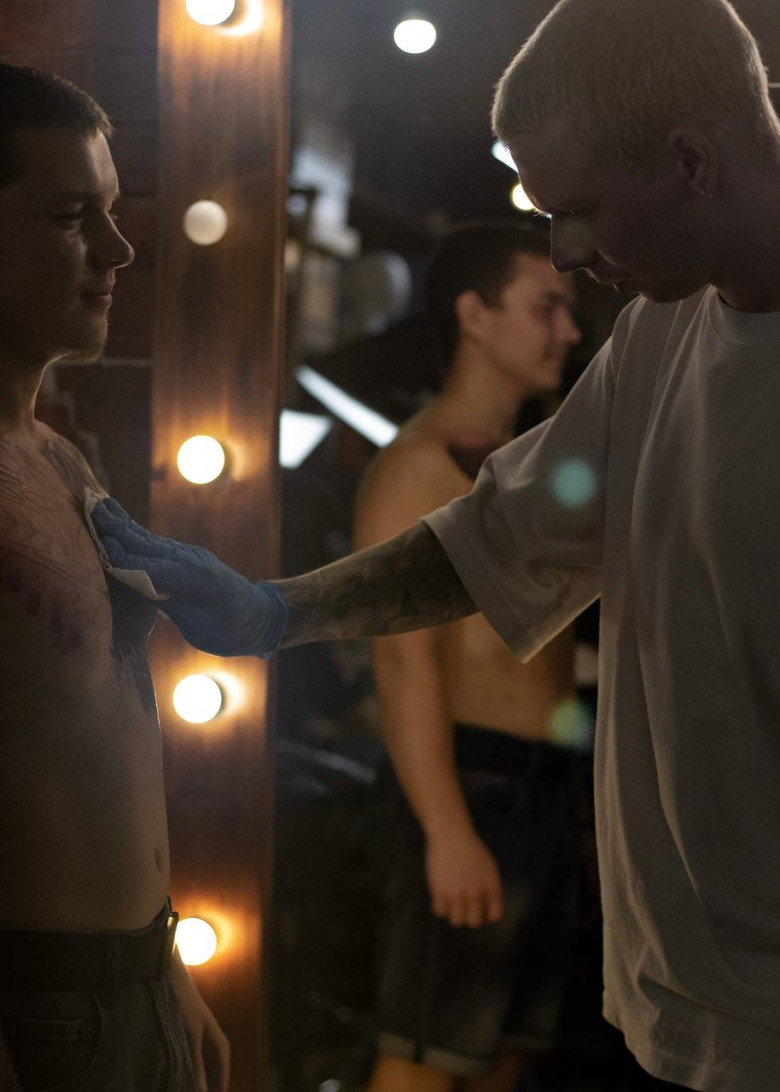
We'll start with our traditional questions: tell us a bit about yourself. Where are you from, what were you doing before tattooing, and how did your career actually begin? Did you have a teacher, and were there any difficulties at the beginning?
- I'm originally from Kamchatka. Before I entered this industry, I was a veterinary student, and I had many hobbies. So, honestly, I didn't dream of becoming a tattoo artist. My career began with another hobby and a desire to try it out. I didn't have any teachers; education in this field was not common at that time. I learned everything on my own, on artificial skin and with brave clients. Of course, there were challenges at the beginning, just like for everyone else. I had to find answers to questions on my own. For example, I learned how to create shadows when my Chinese tattoo machine broke, and it spontaneously reduced the needle's protrusion.
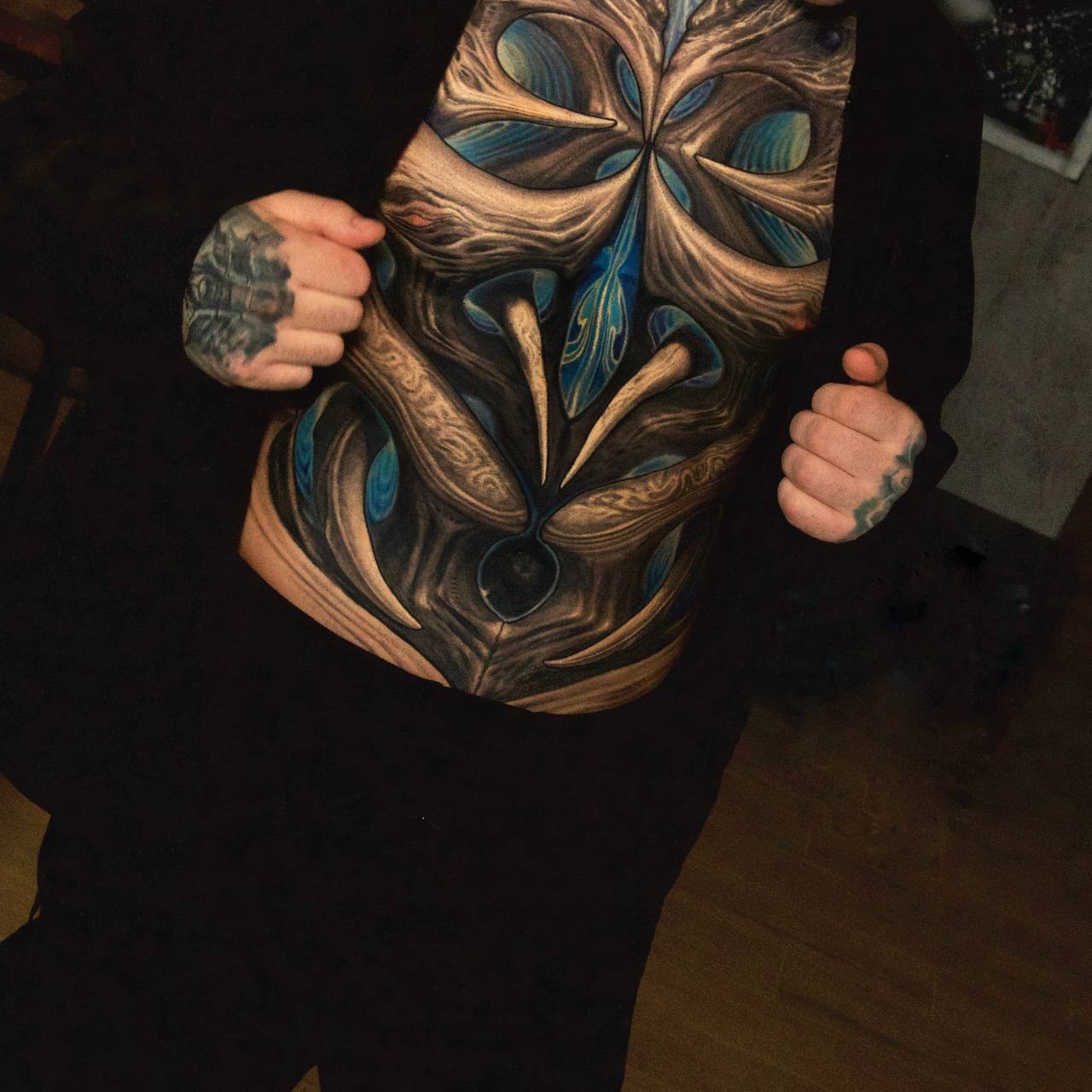
Is tattooing art, a job, or something else for you?
- I am a person for whom victory is important, not just the means to achieve it. So, tattooing is exactly what satisfies that need for me. I mean that I like to see results as soon as possible. So, it's both creativity, a job, and something else.
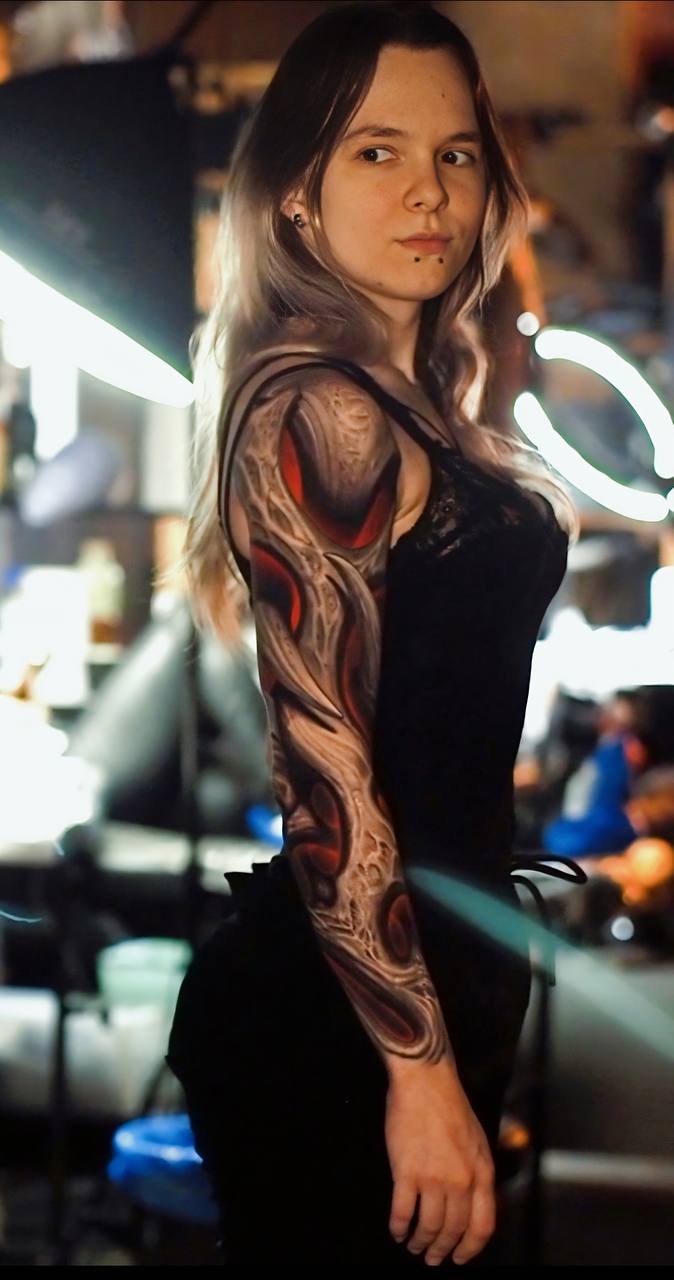
Organic tattoos were popular in the early 2000s and 2010s, but nowadays, there are very few artists in this style. How did you come to it, and what attracts you to it?
- I wouldn't compare organic tattoos from the early 2000s to today. At present, artists aim to interact with the person's body, not just paint a picture as it was done before. What attracts me to organic tattoos is the maximum fusion of the tattoo with the body of its owner. For a long time, I did realism and tried to fit it into the body, adding dynamic elements. Ultimately, I found that more abstract forms look more impressive.
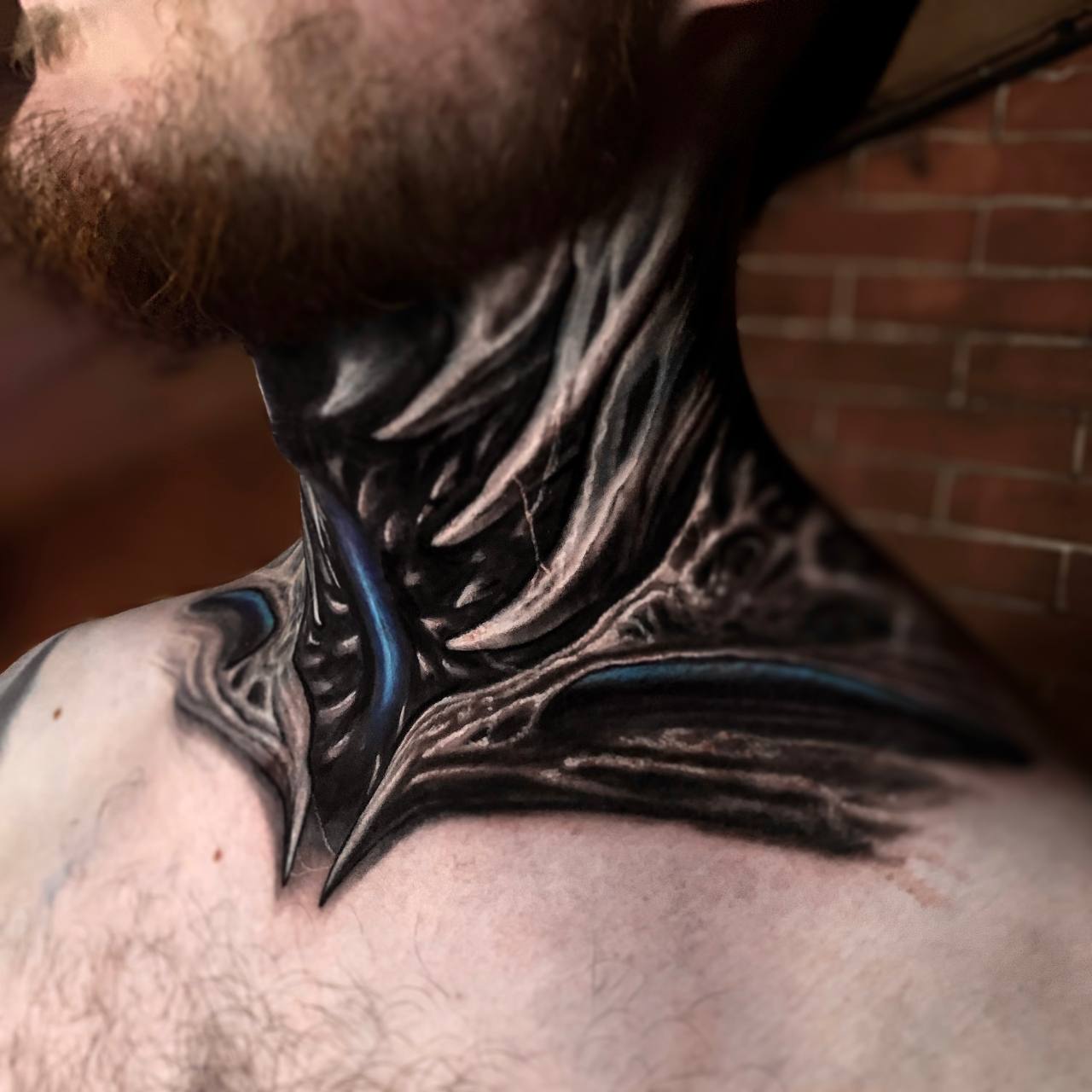
Most artists in this genre were somehow inspired by H.R. Giger. Where do you find inspiration?
- My perception is already so distorted that I can see interesting shapes in almost any object. Recently, I took photos of my bald cat because I saw a cool reference in it. I even have a whole stack of driftwood for an aquarium, even though I don't have an aquarium.
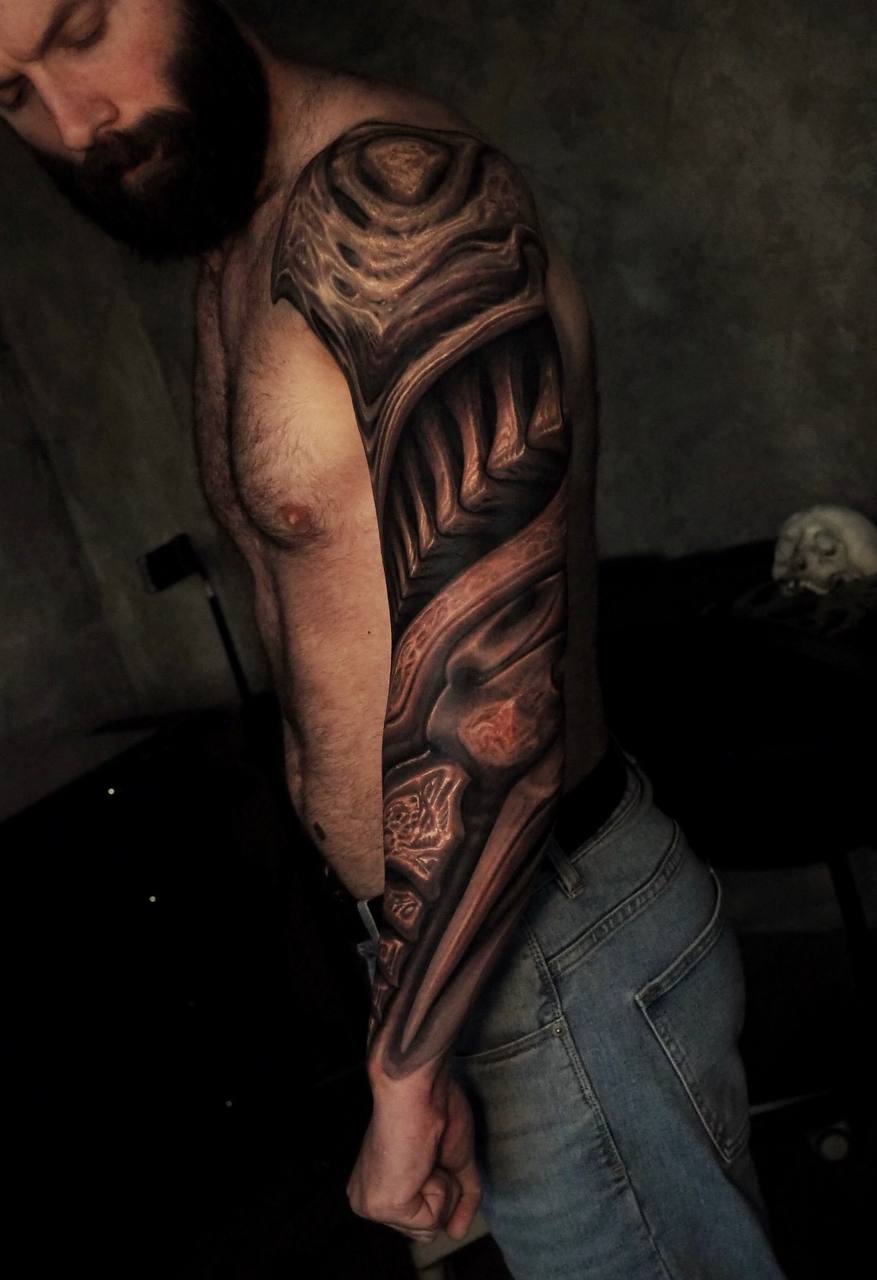
What is the most important thing for you in tattooing?
- I can't answer that question specifically because a tattoo is a mechanism, and every detail of it matters. However, if I were to generalize, I would say that the most important thing for me is mutual understanding between me and the client.
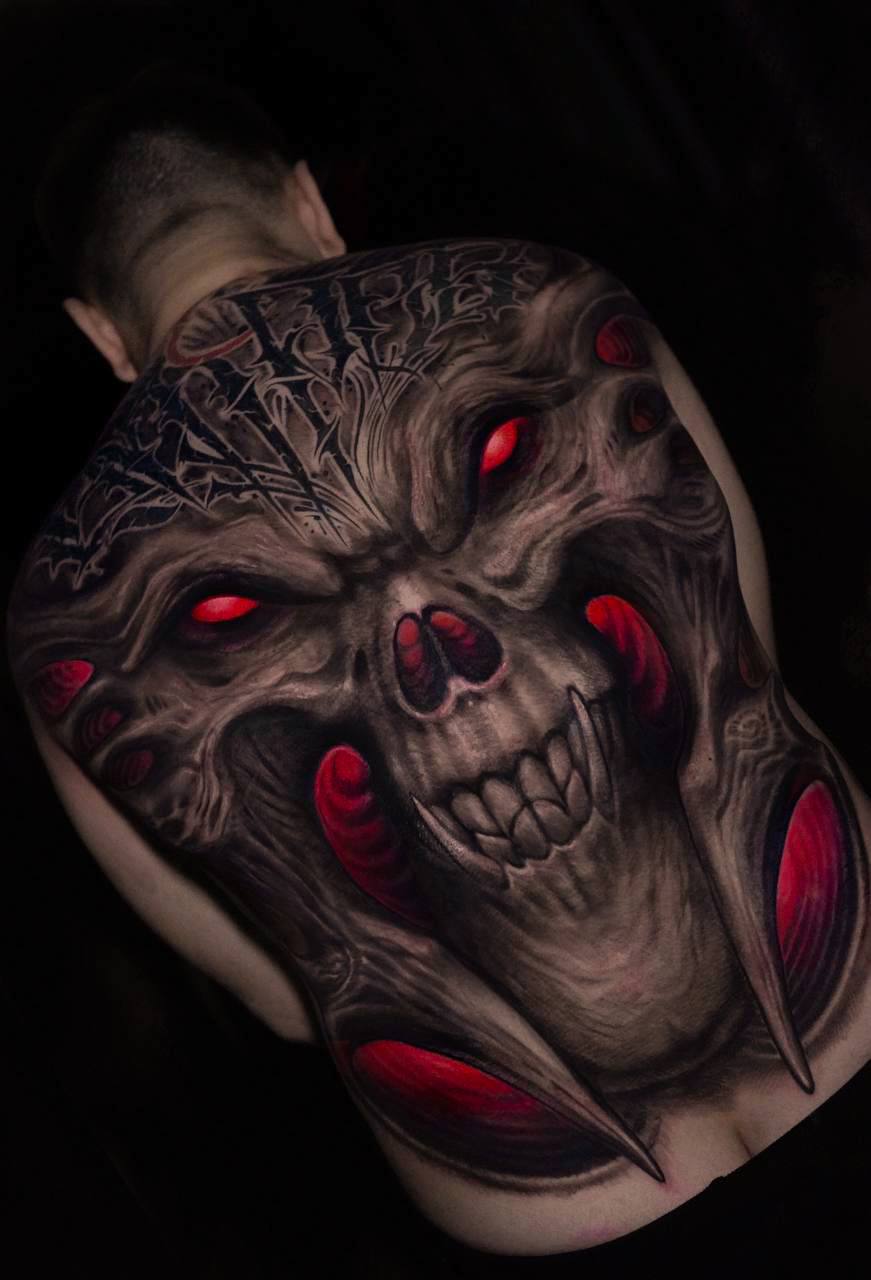
How do your projects come to life? What is the path from a client's idea to the final tattoo? Or do you do things differently? Tell us about it.
- Most often, a project is a symbiosis of the client's general idea and my vision. First, we have a consultation where I explain in detail how the project is developed, and we discuss colors, shapes, and scale.
Then comes freehand. The project is sketched on the body with markers, approved by the client, and then we start tattooing. Often, I draw some details directly with the machine, without preliminary sketches.
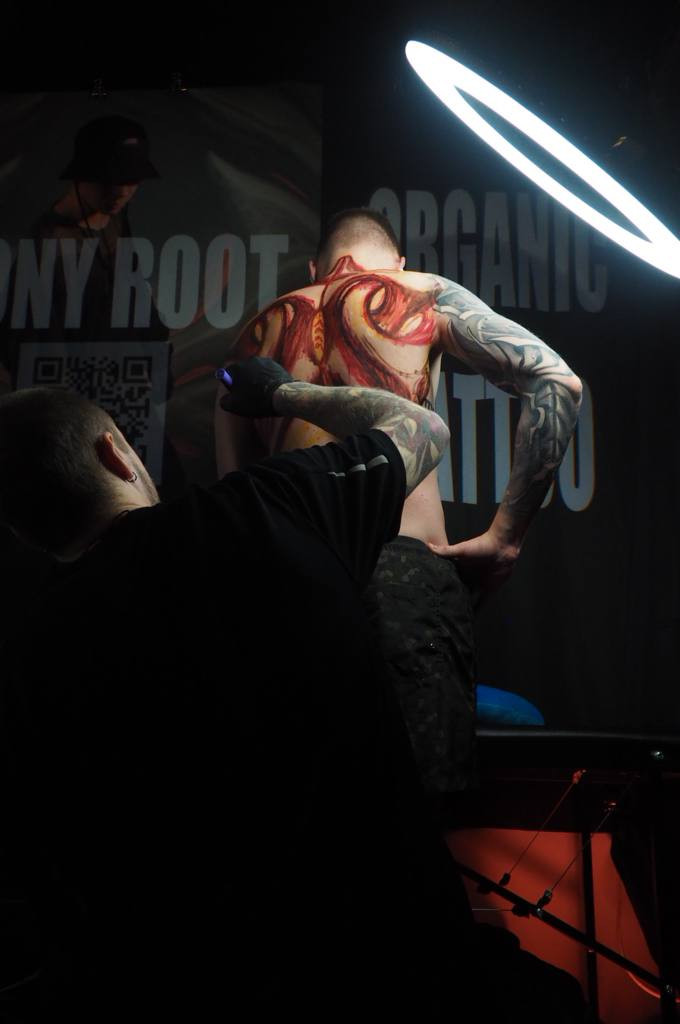
Do you have favorite tattoos, clients, projects, or perhaps some unusual stories in your career?
- All my clients are favorites because they choose me.
Do you travel a lot? Where have you already been? And where is the Mecca of modern organic tattooing?
- As soon as I had the opportunity to travel, COVID happened, and then other events occurred that complicated travel. However, I spent just over half a year in Sri Lanka, working there, and I even managed to do a tattoo for a local guy. Organic tattooing is not the most well-known and popular style in the tattoo industry, so I find it difficult to name any place as the "Mecca of organic tattooing."
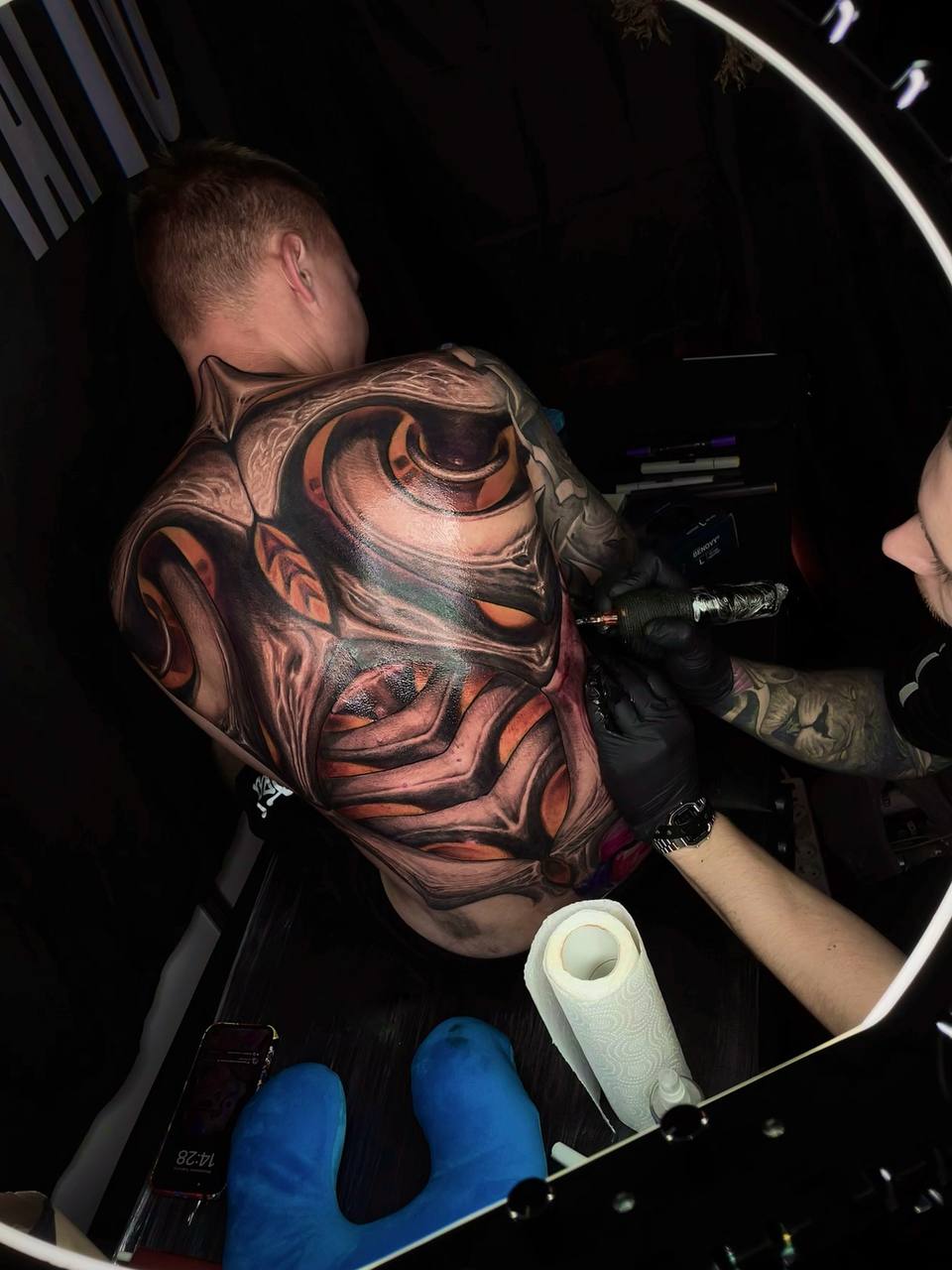
We can't help but congratulate you on your prize at the St. Petersburg festival. Tell us about your convention experience. In your opinion, should modern tattoo artists attend such events, and why?
- Thank you very much! I think that tattoo conventions nowadays are more about networking, making new acquaintances, and gaining experience. The tattoo industry is small, even though it may seem otherwise, and everyone knows each other in one way or another. I believe that participating in festivals is a good way to make a name for yourself, meet people, communicate, and learn from each other.
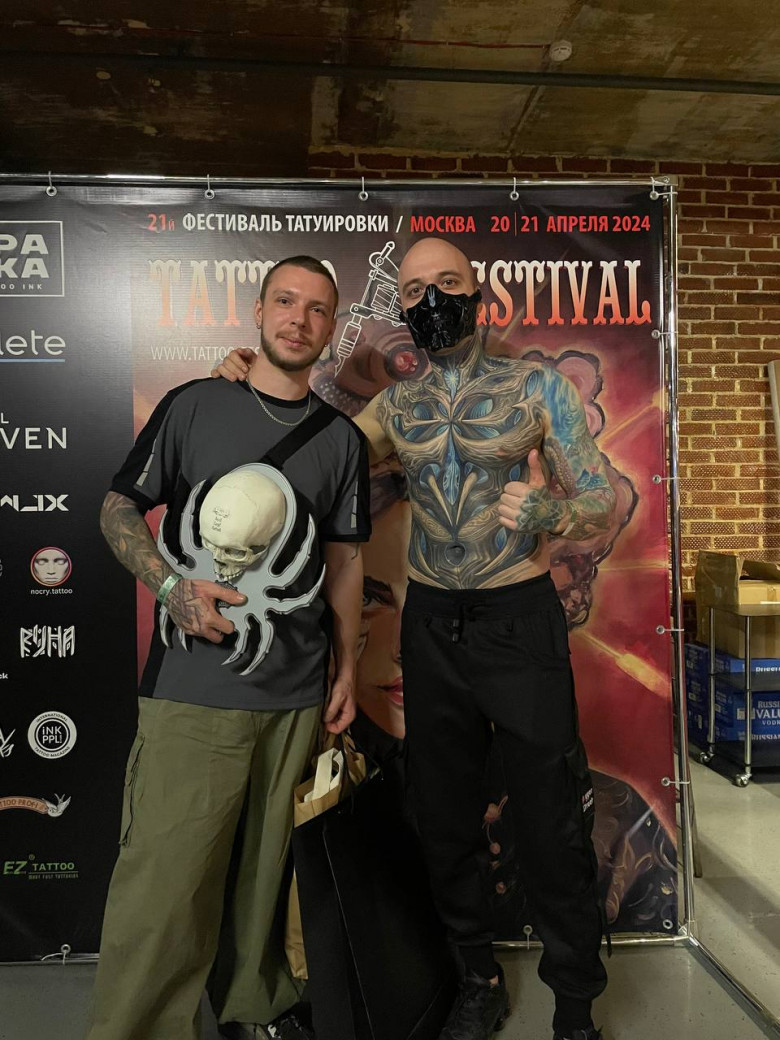
Name your top 5 tattoo artists. It can be contemporary or not.
- My top 5 for today:
@uglyluxury @ors_bloodyhands @tattoobyboyko @gakkinx @futrblacktattoo
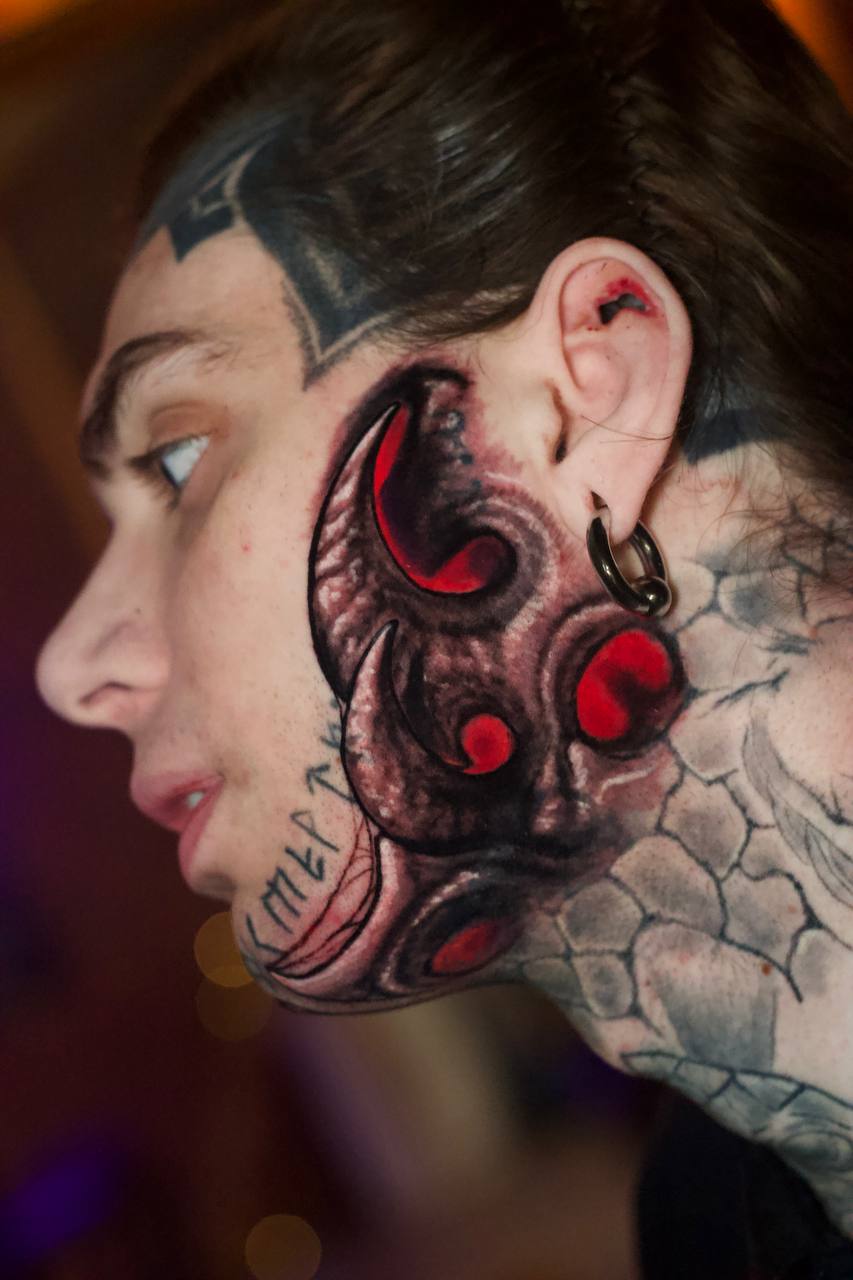
How do you assess your popularity? And in your opinion, how can it be measured?
- I don't consider myself popular at all, but I often encounter situations where people know me.
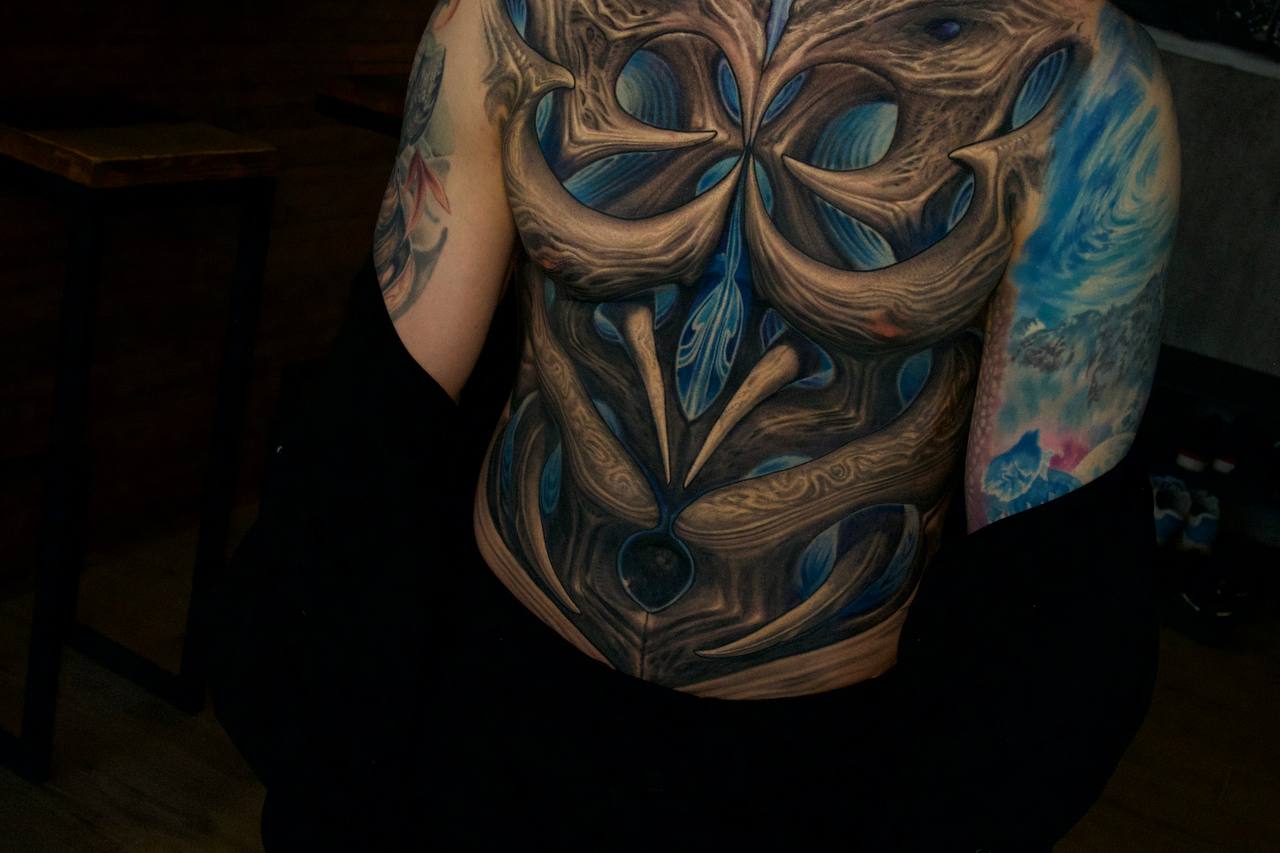
What is the most important thing for you in your tattooing career? What goals do you set for yourself? Share your creative plans for the near future.
- The most important thing for me is to do what I love. My goal is to finally get rid of the impostor syndrome and become a true tattoo artist. My plans for the near future are quite vague because my planning horizon has shortened.
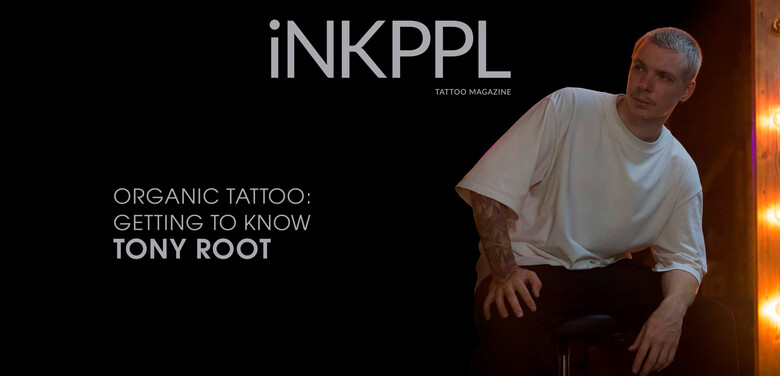


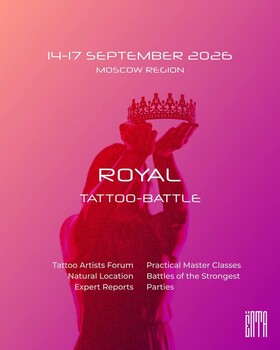
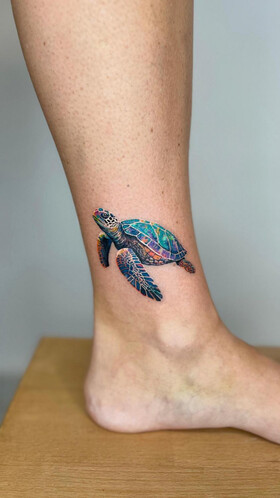
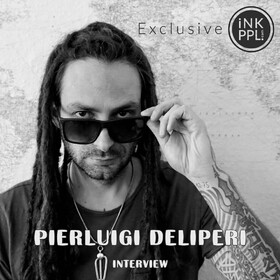
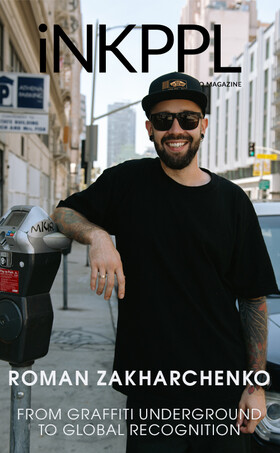
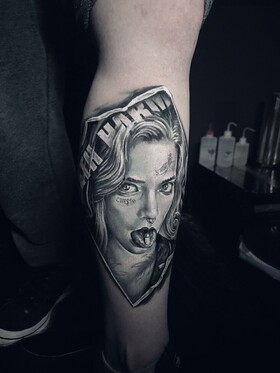
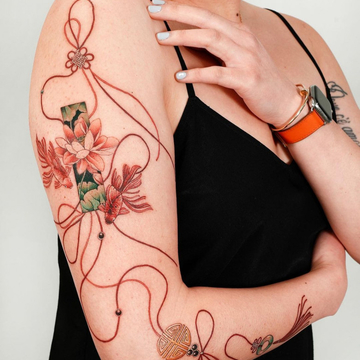
Comments (0)